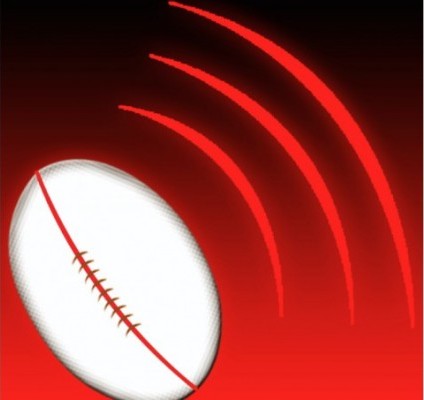How World Rugby Is Complicit In USA Rugby's Problems
How World Rugby Is Complicit In USA Rugby's Problems
This is an Opinion Column by Goff Rugby Report Editor Alex Goff—Why should World Rugby bail out USA Rugby this time? Maybe because World Rugby is partly responsible.
World Rugby has pumped a lot of money into USA Rugby in recent years, but that money often has come with strings attached. Sometimes the costs of those strings have been a bit much.
It’s kind of like when you win a car in a contest only to find out you’ve got to pay a big tax bill.
Strings And Caveats
So, sure, USA Rugby put in a bid for the Sevens World Cup—their own decision—but how much effort did World Rugby put into making sure the host makes some money out of it? World Rugby was so eager to get into the US market, and so used to national governments helping subsidize these kinds of events, they didn’t worry about the risks USA Rugby was taking.
Those risks, when all the numbers were crunched, meant multi-million-dollar losses. Some USA Rugby mistakes, but certainly not all. We've seen several major rugby events in the USA be successful in terms of attendance, and yet USA Rugby as an organization always seems to be squeezed out when it comes time to divvy up the income.
High Performance grants to USA Rugby come with expectations, from the kinds of competitions the USA needs to participate in to what coaches should be involved.
World Rugby’s support of various experts to help USA Rugby on an administration and coaching front, evident since 2006, has been to find someone from outside the USA to fix the issue. The result? Travel expenses, visa expenses, and often no long-term benefit (as in those people stay in the USA and keep building the game here rather than using the USA Rugby job as a stepping stone to a position in the UK or Ireland).
Certainly USA Rugby has also been complicit in accepting the fiction that overseas means better. (It’s not just that in the last 20 years the men’s 15s Eagles have had eight head coaches, and only two were US residents; it’s been about the assistants and the support staff, often much more expensive than their US counterparts).
But, overspends promoted by World Rugby-endorsed experts have proven difficult to argue against. To put it simply, they don’t get it, they don’t know what sports is like in the USA, and they don’t really want to learn.
'Merca ... So What?
In many ways, American Rugby has come through. Certainly, with the great help of Englishman Mike Friday, we've taken a team of US citizens to the top of the World Rugby 7s standings (and a women's team that's been near that top for a while). That team has included players from underserved sources (the African-American community, notably), players who have become stars and the face of the new World Rugby Sevens Series. But who, except for World Rugby, is benefiting from that?
Out-Obnoxiousing Each Other
And the lawsuit with United World Sports is very much World Rugby’s doing. Now, we’re no fans of United World Sports. This writer worked for the company and saw first-hand how difficult they were to work with. But the conflict over the USA 7s came down to who out of World Rugby and United World Sports could out-obnoxious each other.
USA Rugby’s fault? Not choosing sides. So World Rugby had the fight with UWS, and it’s USA Rugby that is burdened with defending a lawsuit. And now World Rugby is saying “hey, sorry, that’s your problem.”
Doesn’t seem right, does it?
If World Rugby doesn’t bail out USA Rugby, allowing the organization to go Chapter 11, and instead USAR liquidates, it might be a good idea for the next version of the sport’s governing body in the US to tell Dublin to take all those experts and get stuffed; to take those fancy Tier 1 tours and say no more unless we get a better financial deal; and to take attached strings and weave a nice big gag so they can shut the hell up.












